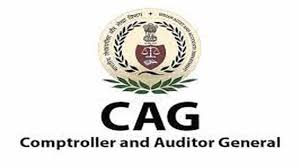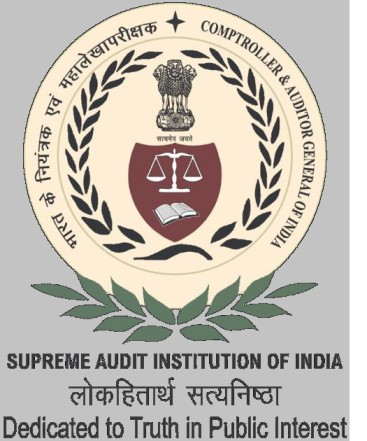
C&AG of India - Comptroller and Auditor General of India
1. Introduction
2. Constitutional Provisions
Article 148: Establishes the C&AG of India.
Article 149: Describes the duties and powers of the C&AG.
Article 150: Mandates that the form in which accounts of the union and states shall be kept is prescribed by the C&AG.
Article 151: Provides that the reports of the C&AG shall be submitted to the President or the Governor, who shall then place it before the Parliament or state legislature, respectively.
3. Appointment and Tenure
4. Functions of C&AG
5. Importance
6. Challenges
Key Points:
C&AG - Supreme Audit Authority in India
Independent authority under the Constitution of India
Pay & Allowances of C&AG is comes under Charged Expenditure (Not Voted Expenditure)
Article 148 of the Constitution of India - Appointment of the C&AG
Articles 149 to 151 - Functions of C&AG
Appointed by the President of India
Tenure: 6 Years or 65 Years of age whichever is earlier
Functions: Audit of Receipts & Expenditure of Government and PSEs (Public Sector Enterprises)
Reports to Parliament through PAC - Public Accounts Committee and COPU - Committee Of Public Undertakings
–end–

सीएजी (भारत के नियंत्रक और महालेखा परीक्षक) के बारे में प्रमुख बिंदु
1. परिचय
2. संवैधानिक प्रावधान
अनुच्छेद 148: भारत के नियंत्रक और महालेखा परीक्षक का प्रावधान करता है।
अनुच्छेद 149: सीएजी के कर्तव्यों और शक्तियों का वर्णन करता है।
अनुच्छेद 150: सीएजी द्वारा निर्धारित रूप में संघ और राज्यों के खातों को रखने का आदेश देता है।
अनुच्छेद 151: सीएजी की रिपोर्ट राष्ट्रपति या राज्यपाल को सौंपी जाती है, जो उसे संसद या राज्य विधानमंडल के समक्ष प्रस्तुत करते हैं।
3. नियुक्ति और कार्यकाल
4. सीएजी के कार्य
5. महत्व
6. चुनौतियाँ
मुख्य बिंदु:
C&AG - भारत में सर्वोच्च लेखा परीक्षा प्राधिकरण
भारत के संविधान के तहत स्वतंत्र प्राधिकरण
C&AG का वेतन और भत्ते प्रभारित व्यय (मतदान व्यय नहीं) के अंतर्गत आते हैं
भारत के संविधान का अनुच्छेद 148 - C&AG की नियुक्ति
अनुच्छेद 149 से 151 - C&AG के कार्य
भारत के राष्ट्रपति द्वारा नियुक्त
कार्यकाल: 6 वर्ष या 65 वर्ष की आयु जो भी पहले हो
कार्य: सरकार और सार्वजनिक क्षेत्र के उद्यमों (पीएसई) की प्राप्तियों और व्यय का लेखा परीक्षण
पीएसी - लोक लेखा समिति और सीओपीयू - सार्वजनिक उपक्रमों की समिति के माध्यम से संसद को रिपोर्ट
-end-
